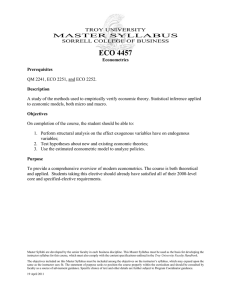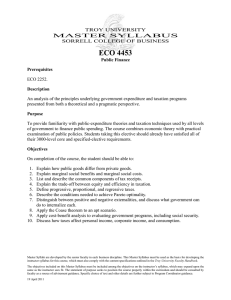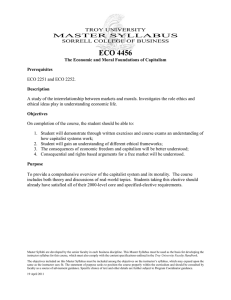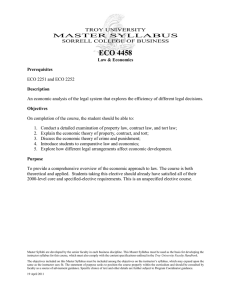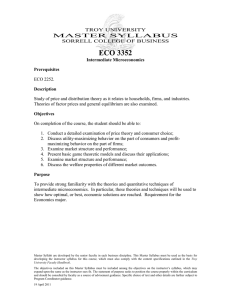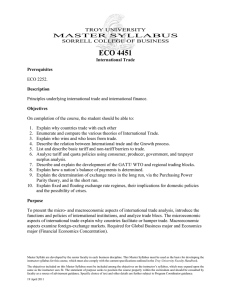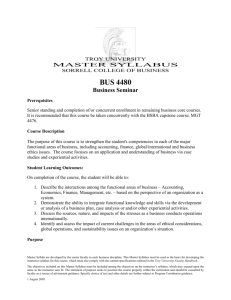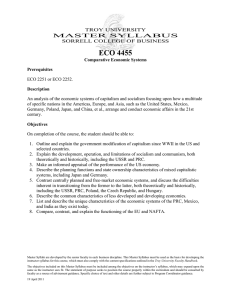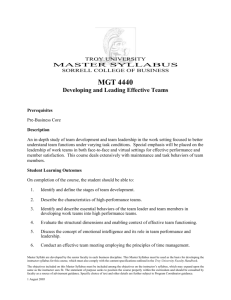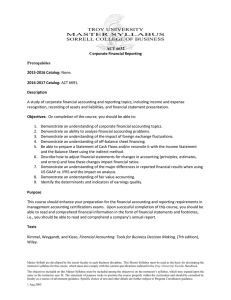ECO 4454 - the Sorrell College of Business at Troy University
advertisement
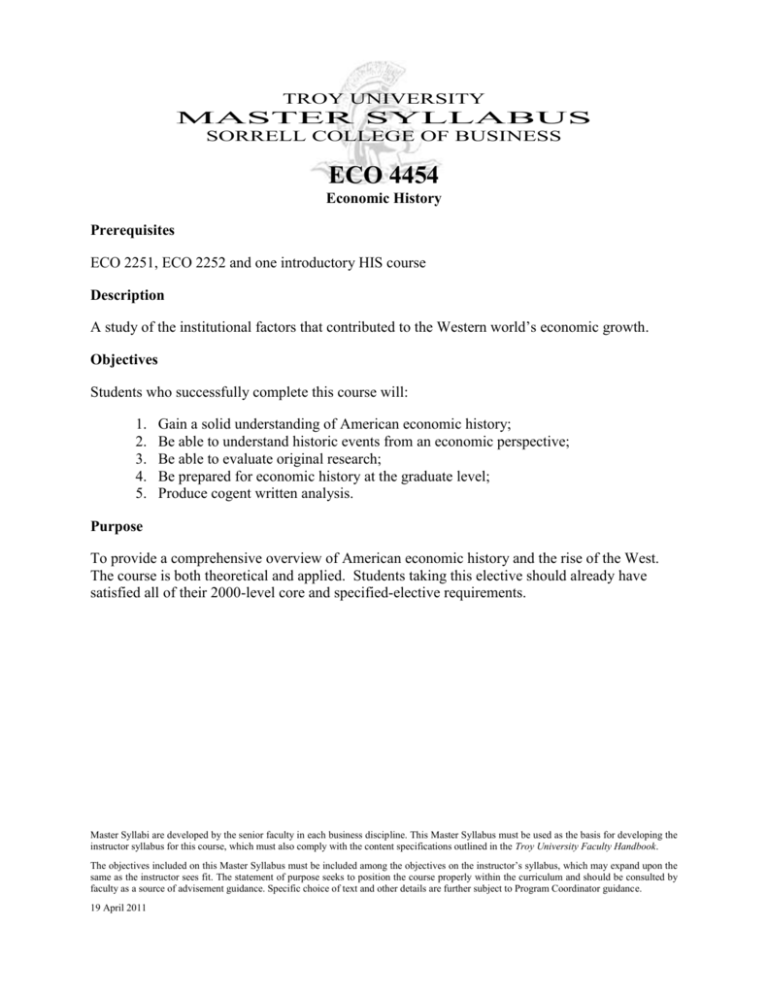
TROY UNIVERSITY MASTER SYLLABUS SORRELL COLLEGE OF BUSINESS ECO 4454 Economic History Prerequisites ECO 2251, ECO 2252 and one introductory HIS course Description A study of the institutional factors that contributed to the Western world’s economic growth. Objectives Students who successfully complete this course will: 1. 2. 3. 4. 5. Gain a solid understanding of American economic history; Be able to understand historic events from an economic perspective; Be able to evaluate original research; Be prepared for economic history at the graduate level; Produce cogent written analysis. Purpose To provide a comprehensive overview of American economic history and the rise of the West. The course is both theoretical and applied. Students taking this elective should already have satisfied all of their 2000-level core and specified-elective requirements. Master Syllabi are developed by the senior faculty in each business discipline. This Master Syllabus must be used as the basis for developing the instructor syllabus for this course, which must also comply with the content specifications outlined in the Troy University Faculty Handbook. The objectives included on this Master Syllabus must be included among the objectives on the instructor’s syllabus, which may expand upon the same as the instructor sees fit. The statement of purpose seeks to position the course properly within the curriculum and should be consulted by faculty as a source of advisement guidance. Specific choice of text and other details are further subject to Program Coordinator guidance. 19 April 2011 Master Syllabus: ECO 4454 (Revised August 2013) 2 Approved Texts Walton, G., and Rockoff, H. (current). History of the American Economy. Birdzell, L., and Rosenberg, N. (current). How the West Grew Rich. Allison, J. (2012). The Financial Crisis and the Free Market Cure: How Destructive Banking Reform is Killing the Economy. McGraw Hill. Folsom, B. (1996). The Myth of the Robber Barons. Young America’s Foundation. Levy, R. & Mellor, W. (2008). The Dirty Dozen: How Twelve Supreme Court Cases Radically Expanded Government and Eroded Freedom. Sentinel. Ridley, M. (2010). The Rational Optimist: How Prosperity Evolves. HarperCollins. Shlaes, A. (2007). The Forgotten Man: A New History of the Great Depression. HarperCollins. Williams, W. (2011). Race & Economics. Hoover Institution Press. Troy University Faculty Handbook (2010): Section 3.9.2.8 [extract] — essential elements of the syllabus (somewhat modified for space): 1. Course title 2. Course number + section 3. Term 4. Instructor 5. Prerequisites 6. Office hours 7. Class days, times 8. Classroom location 9. Office location + e-mail address 10. Office telephone 11. Course description, objectives 12. Text(s) 13. Other materials 14. Grading methods, 16. General supports criterion weights, (computer works, make-up policy, writing center) mid-term grade 17. Daily assignments, reports holidays, add/drop 15. Procedure, course & open dates, dead requirements day, final exam 18. ADA statement 19. Electronic device statement 20. Additional services, statements 21. Absence policy 22. Incomplete-work policy 23. Cheating policy 24. Specialization requirements (certification, licensure, teacher competencies)
